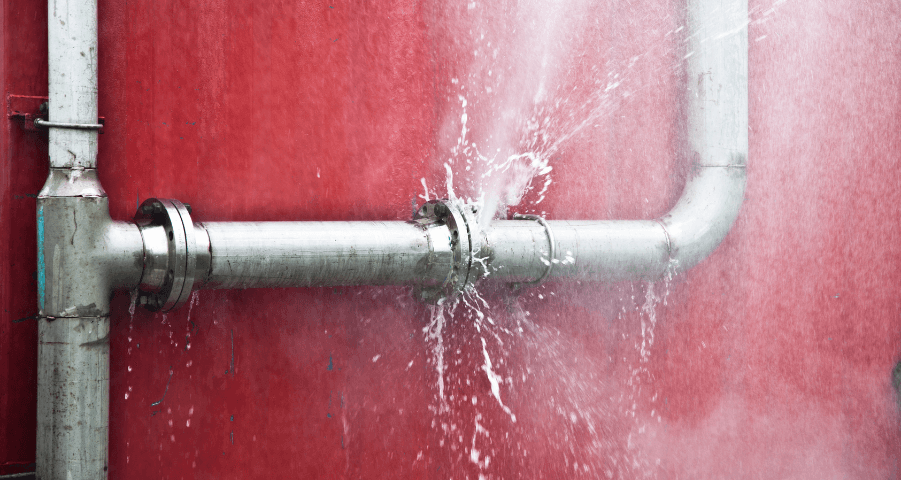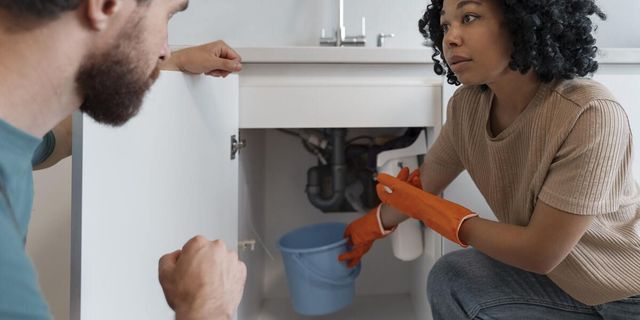Quick Solutions for Emergencies Until Help Arrives
Quick Solutions for Emergencies Until Help Arrives
Blog Article
How do you feel in regards to Plumbing Emergencies: Tips on What To Do Before?

Plumbing emergencies can strike any time, creating stress and anxiety and prospective damage to your home. Whether it's a burst pipe, a clogged up drainpipe, or a leaking faucet, understanding how to take care of the scenario up until an expert plumbing gets here can conserve you from additional problems. This post supplies vital emergency pipes ideas to help you mitigate damages and restore control during a pipes dilemma.
Turn Off the Water Supply
The very first step in any type of plumbing emergency situation is to shut down the supply of water. For localized concerns, such as a leaking faucet or commode, shut off the valve near the component. In the case of a major leakage or burst pipeline, find your home's main water shut-off shutoff and turn it off immediately. Recognizing the location of these shutoffs in advance can save useful time during an emergency situation.
Address Little Leaks with Momentary Fixes
Tiny leaks can swiftly become substantial issues if left uncontrolled. Utilize these temporary repairs until specialist help gets here:
While these repairs aren't irreversible, they can help decrease water loss and damage.
Unclog Drains Pipes Securely
A blocked drainpipe can be a frustrating and untidy concern. Here's exactly how to tackle it:
If these methods do not function, stay clear of using extreme pressure, as it might worsen the blockage.
Handle Overflowing Toilets
An overruning commode can create immediate mayhem. Right here's what you must do:
Shut Off Your Water Heater
In certain emergencies, such as a burst pipe, it's wise to shut off your water heater. This prevents overheating or damage to the unit when water quits moving. Switch off the power supply to the water heater (electric or gas) and let it cool down to avoid potential hazards.
Momentarily Quit a Ruptured Pipeline
A ruptured pipe can result in significant water damage in minutes. To minimize the concern:
Call a professional plumber instantly to deal with the problem permanently.
Manage Frozen Water Lines Very Carefully
In chillier climates, frozen pipelines are a typical emergency. If you suspect an icy pipe:
Prevent More Damage
Taking quick activity to minimize damages can save you time and money in the long run. Right here's how:
. Have an Emergency Situation Plumbing Set
Prepare a basic plumbing emergency situation set to take care of minor concerns properly. Your kit must include:
Having these tools handy can make a significant distinction in your capacity to manage emergencies.
Know When to Call a Specialist.
While quick fixes can help briefly, particular plumbing problems call for immediate expert focus. Call a plumbing if:.
Immediately speaking to a professional guarantees the problem is solved appropriately and protects against further problems.
Final thought.
Plumbing emergency situations can be frustrating, yet with the right understanding and tools, you can handle the scenario properly until help arrives. By shutting off the water system, attending to little leakages, and making use of short-lived solutions, you can minimize damage and keep your home safe. Remember, these suggestions are short-term services; always seek advice from a certified plumbing technician to manage the source of the issue. Prep work and quick thinking are your finest allies in any type of plumbing emergency.
8 Helpful Tips for Managing Plumbing Emergencies at Home
If your plumbing system hasn’t failed once, wait for it because almost everyone has a story to tell. Sometimes, it could be simple emergencies such as a leaking pipe, a blocked cistern, or even a big burst pipe. In situations like this, you need to have some handy tips to save you some money and from possible damages.
Take care of minor issues early.
Sometimes, you could have avoided an emergency by taking proactive measures while it was still early. Some major plumbing emergencies can be a result of an ignored minor issue. We recommend that you have items like plumbing tapes and other related items. A plumbing tape can allow you to manage minor leaks before the plumber arrives.
Cut off the water supply.
This tip is essential in almost any type of leakage problem. For problems like minor leakages in the toilet or kitchen, turn off the supply that takes water to the affected pipes. If the leakage is a major pipe, you must shut off the supply valve to the entire building. This will help you avoid flooding your home and neighbors if you share a flat.
Know your plumbing system
Folks typically move into a new apartment without understanding the water supply around the building. This can prove disastrous if a water emergency arises and the plumber is far away. The previous tip will prove useless if you don’t practice this one. More importantly, know where your water shut-off valve is located – you’ll need that knowledge to prevent potential home floods.
Have some common handy tools
There are lots of plumbing emergencies that you can handle without hiring a plumber. That’s why you must keep some tools available always. Some tools that you can use to fix simple plumbing emergencies easily include plumbing tapes, screwdrivers, thread seal tapes, plungers, pliers, tape measures, and rubber gloves.
Insulate your pipes from cold
You’ll save yourself from many plumbing expenses if you protect your water pipes from the cold. This is because of the harmful effects that cold weather can have on your pipes. During winter, your pipes can burst from being overly expected to freezing temperatures. So, make sure insulators are there to keep the pipes working correctly.
Avoid practices that will clog your toilet.
Many people indulge in practices that can damage the plumbing system of the entire building. One of these is when they use their toilet to dispose-off garbage. They flush all kinds of things, such as paper towels, bandages, hairs, female sanitary products, etc., down the toilet. This will block your toilet in the long run, incurring unnecessary expenditures. Dump such waste in the trash instead.
Check your dials regularly.
Sometimes, there could be leakages in your home without noticing them in time. So, constantly monitor your water meter dial. If the dial is reading when there is nobody using water, this is an indicator that there is leaking. Check for leaks immediately. Call a plumber as soon as possible if you can’t find any.
https://www.constructionplacements.com/8-helpful-tips-for-managing-plumbing-emergencies-at-home/

I have been very excited about What to Do While Waiting for an Emergency Plumber and I really hope you appreciated my page. In case you enjoyed reading our blog post please remember to share it. I praise you for your time. Please pay a visit to our site back soon.
Click Here! Report this page